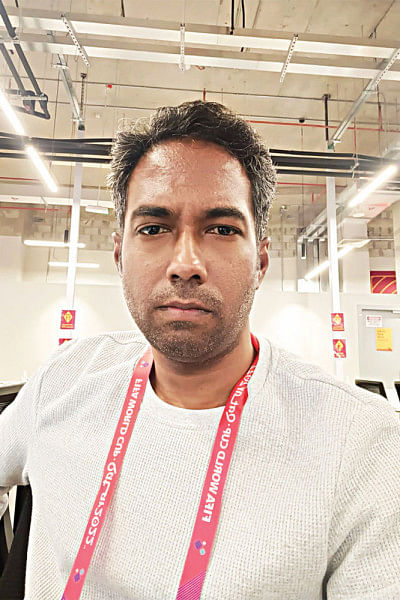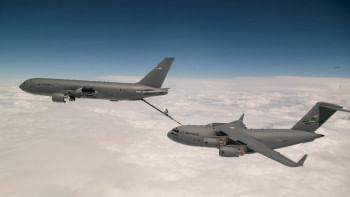‘Argentina will win WC for their fans in Palestine’

Ihab Abu Alkheir was only eight years old when he, along with his family members in Gaza, Palestine, watched as Diego Maradona wept after losing the final of the 1990 World Cup final against Germany.
It was a close contest – Ihab recalls – one that was decided by a 50-50 penalty decision, converted by Andres Brehme, as Maradona and Argentina's four-year reign as world champions came to a cruel end.
Ihab remembers how everyone in his family was left saddened by the defeat to Argentina, loved in Palestine as much as anywhere else in the world.
The now 40-year-old journalist never had the chance to see the late Argentina icon from close-up, but now he has the opportunity to watch Maradona's successor, Lionel Messi, lift the trophy.
Ihab got a phone call from his mother back in Gaza two days ago. She told her son that Messi will definitely win the World Cup for the Argentina fans back in Palestine and beyond when Argentina take on defending champions France in the final on Sunday.

Ihab is excited as he speaks about the globally revered footballer from Rosario.
"It's not just in Palestine that Messi is revered. I think people all over the world love him for the way he plays, the way he behaves and the way he carries himself on and off the pitch. He's achieved everything in football except for the World Cup. He deserves it and he should win," Ihab says, during a chat with this reporter at the Host Country Media Centre in Doha yesterday.
Ihab is one of around 20 journalists from Palestine who took the long and winding trip to Qatar to watch the World Cup. The radio journalist had to cross to Riffa and then take a long bus journey to Cairo before taking a flight to Doha. But the World Cup has been worth the hassle for Ihab and the group of Palestinian journalists.
He says that amid the difficult political and economic situation back home, people get a respite and joy in the month of the World Cup, and that he is happy to relay the stories of the global sporting extravaganza to his people.
Although FIFA statutes govern that no political messages or symbols be shown at World Cup venues, the Qatar World Cup has seen a divergence from that strict position, with many Palestinian flags waved around the galleries and on the streets by Arabs and non-Arabs alike.
"What makes us most happy is when we see people from across the Arab world and many from beyond showing solidarity with the Palestinian struggle for an independent state.
"I was so moved when the Moroccan players called their teammates and families from the stands, and they celebrated with the Palestinian flag," Ihab says.
His World Cup experience will, Ihab feels, be fulfilled when he watches Messi hold aloft the trophy at the Lusail Iconic Stadium tonight.

 For all latest news, follow The Daily Star's Google News channel.
For all latest news, follow The Daily Star's Google News channel. 



Comments